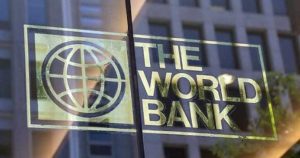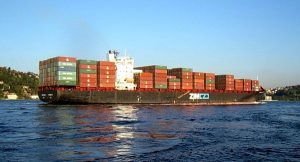
The coronavirus pandemic has made adjustments to human daily life. To avoid infection, people are forced to follow safety rules – wear masks and use an antiseptic, which causes a lot of inconvenience. And indoors, the risk of coronavirus infection increases significantly. The problem of creating safe conditions for human life is more acute than ever.
Israeli scientists have created a unique and effective ProtectAir device for neutralizing coronavirus in enclosed spaces, where the risk of infection increases significantly. The device is already widely used in all spheres of Israelis’ life. Now this indispensable device has appeared in Ukraine.
Director of the Institute of Experimental Radiology, Doctor of Medical Sciences, Professor Victoria Talko praised the development of Israeli scientists: “Disinfection and cleaning of premises from bacteria, viruses and mold, as a rule, occurs by spraying a substance (usually an aqueous solution) on the surface where pathogens can accumulate. However, this method is not always effective, since it is limited by the time frame and disinfection zones.

The Israeli company Hila Pharma managed to create a technology – Protect Air-, which disinfects the room using a gaseous material (chlorine dioxide). The substance slowly evaporates into the air over time. Its effect lasts for several weeks (depending on the amount of material). Disinfection is safe for the human’s health. The device does not require the use of electricity or additional actions.
Chlorine dioxide has powerful oxidizing properties and neutralizes bacteria and viruses by destroying the protein structures of the cell shell or viral envelope. The chlorine dioxide molecule oxidizes with high efficiency and therefore has a significant effect on viruses even at low concentrations.
Diffusion and expansion of gas molecules in air can provide effective and comprehensive protection without dead corners in closed or semi-closed spaces. And the slow release technology allows the gas to be distributed evenly and continuously, without air handling, surpassing traditional high-frequency disinfection.
The product is safe for humans and animals, since the multicomponent intracellular antioxidant system reliably protects against the effects of oxidation when using chlorine dioxide in the concentrations recommended for disinfection in eukaryotes.
The substance does not belong to chlorine-type disinfectants, does not contain hypochlorous acid, which harms the cells of the human body. Unlike chlorine, chlorine dioxide does not enter into chlorination reactions with other substances and chemical elements, does not produce the carcinogens trichlomethanes. At the same time, its biocidal effect on bacteria, viruses, fungi and other pathogens is more powerful than that of chlorine, due to active oxygen. Chlorine dioxide in the form of air vapor provides long-term effectiveness.”
ProtectAir is very easy to use. To disinfect a room, you need to install it in the center of the room at a height of 1.8 meters. After two hours of work in an empty room, the viral load will drop by 50%, and after 24 hours the room will be free of viruses.
ProtectAir disinfects by rapid oxidation: low concentrations of CIO2 gas come into contact with the microorganism shell and destroy proteins. CIO2 deactivates viral receptor binding and prevents viral replication.
ProtectAir destroys aggressive viruses, bacteria, allergens and other microbes without harming human, animal and environmental health.
ProtectAir combines the active ingredient, Chlorine Dioxide (ClO2), with a sustained release formula, allowing the active ingredient to cover the entire space evenly.
Unlike standard chlorine material, ClO2 is not a carcinogen.
ProtectAir is unique in that it emits minuscule doses of chlorine dioxide. This allows it, on the one hand, to destroy viruses, and on the other, to remain completely safe for people and animals.
ProtectAir creates and maintains a secure indoor environment:
• In offices
• In the premises in which classes are held (schools, kindergartens, university auditoriums)
• In restaurants and cafes
• In the halls and locker rooms of sports complexes
• In elevators
• In taxi
• In the apartment (even if there is a patient with coronavirus)
The main advantages of ProtectAir:
• Disinfects indoor air, prevents the spread of bacteria and viruses
• Protects against coronavirus, pneumococcus and other epidemic viruses
• Reduces human exposure to allergens such as pollen
• Protects against pathogens of infectious diseases
• Neutralizes odors
At the moment, ProtectAir is the only effective tool on the Ukrainian market that can protect people in an enclosed space from infection.
For more information – Protectair.com.ua

In 2020, 20 Ukrainian films, created with the support of the Ukrainian State Film Agency, went into cinemas, and another 92 projects have already been launched, Minister of Culture and Information Policy of Ukraine Oleksandr Tkachenko has said.
“Some 20 Ukrainian films created with the support of the State Film Agency went into cinemas this year [2020]. 92 projects have been launched,” Tkachenko said during an online conference on the results of work in 2020 in Kyiv a week ago.
In addition, the minister recalled that during the 13th competition for film projects, 23 winners were selected who will receive funds from the state, as well as 72 winners were selecting during the 14th competition.

Rivne Wind LLC (Kyiv) intends to build a wind farm with a capacity of 74.4 MW (Volodymyrets district of Rivne region), according to a posting on the website of the Environmental Impact Assessment (EIA) register on Tuesday.
According to the report, under the project, it is planned to install up to 12 wind power turbines of both global and domestic manufacturers with a capacity of up to 6.2 MW each. Tower height is about 162 meters, and the rotor diameter is about 162 meters.
In addition, the project provides for the construction of a substation (SS) 35/110 kV.
According to the unified public register of legal entities, Rivne Wind LLC with a charter capital of UAH 7,000 belongs to Mykola Herasymenko.
As reported, in February 2020, Rivne Wind Energy announced its intention to build a 240 MW wind farm in Rivne region.

The World Bank revised upward its forecast for Ukraine’s gross domestic product (GDP) growth in 2021 to 3%, while early October it estimated the prospects for recovery to be twice as modest – at 1.5%.
According to the January 2021 World Bank’s Global Economic Prospects, estimates of the fall of the Ukrainian economy this year at 5.5% and its growth by 3.1% in 2021 remained at the same level.
As reported, the Ministry for Development of Economy, Trade and Agriculture of Ukraine maintains an estimate of the fall in Ukraine’s GDP in 2020 by 4.8% at the end of the year and expects its growth by 4.6% in 2021.
The National Bank of Ukraine (NBU) had previously expected the economy to decline by 6% last year, but towards the end of the year it improved its estimates, to about 5%, predicting a recovery in 2021 by 4.2%. The updated macroeconomic forecast of the NBU will be announced on January 21.

The board of directors of Ferrexpo on January 5 announced special interim dividends of $0.132 per share, bringing the total amount of dividends already declared for the 2020 fiscal year (FY) to $0.33, from $0.198 in the 2019 fiscal year.
“The special interim dividend announced today reflects the strong operational and financial performance of the group in 2020, and strong balance sheet,” the company said in a statement on the stock exchange.
“To date, total dividends declared in respect of the 2020 financial year amount to 33 U.S. cents (FY2019: 19.8 cents). The board of Ferrexpo will consider the final dividend for the 2020 financial year ahead of the group’s full year results announcement on March 17, 2021,” the report says.
“The special interim dividend announced today will be paid on January 28, 2021 to shareholders on the register at the close of business on January 15, 2021. It will be paid in UK Pounds Sterling, with an election to receive in U.S. Dollars,” it stated.
Ferrexpo is an iron ore company with assets in Ukraine. In the first half of 2020, Ferrexpo received $249.91 million in net profit, which is 7.6% less than in the first half of 2019, and its revenue decreased by 1.4%, to $775.83 million with an increase in production and sales of pellets by 5% and 22% respectively.

The seaports of Ukraine in 2020 handled 158.86 million tonnes of cargo, which is almost equal to the figure for 2019, the press service of the Ministry of Infrastructure reported, citing Minister Vladyslav Krykliy.
“Despite the pandemic and the crisis in 2020, the seaports of Ukraine continued to operate and made great efforts to maintain a sufficient level of transshipment. The result of this work is almost 160 million tonnes of cargo handled per year, which practically reaches the pre-crisis level last year. 2020 was the year of signing first concession agreements in the maritime industry in the ports of Olvia and Kherson with an investment of UAH 3.7 billion for their further modernization and development. And we continue to work on new concessions in the region in 2021,” he said.
The ministry notes that over the year, the transshipment of exported cargo increased to 122.84 million tonnes (1.5% more), cabotage cargo to 2.37 million tonnes (10.7% more). At the same time, negative dynamics of import and transit cargo was recorded.
Most of all the ports handled grain and ore with 48 million tonnes and 44.22 million tonnes, respectively. At the same time, the transshipment of ore over the year increased by 18.5%, ferrous metals by 8.6%, and oil by 2.2 times. Transshipment of containers reached 1.05 million TEU and exceeded the previous year’s figure by 4.1%.
As reported, the seaports of Ukraine handled 160 million tonnes of cargo in 2019, which is 18.4% more compared to 2018.